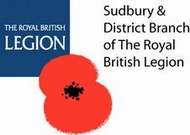|
202316 1st Battalion, Cambridgeshire Regiment
(formerly 4th Battalion, Suffolk Regiment)
James Smith was born in Sudbury on 5 August 1895 one of six children of Thomas and Harriet Smith. His father was employed as a cocoa mat maker and general labourer. The family lived at 35 Mill Lane and later moved to No.46. James attended the Roman Catholic School in Sudbury; on leaving school he was employed as a gardener.
He enlisted in Sudbury and served with the Suffolk Regiment (formerly 3/8501). He first served in a theatre of war on 2nd September 1914 in France, which indicates he was either a reservist or a Territorial soldier. The 4th Battalion was based in Ipswich and embarked for France on 9 November 1914. It is not known when he joined this battalion.
James was wounded on 23 April 1915 and again in November 1916 when he was invalided home. He transferred to the Cambridgeshire Regiment and returned to France on 18 December 1917. On 21 March 1918 the Germans launched their Spring Offensive. Operation Michael was a vast attack along the whole Somme sector front with the aim to destroy the British Army. The 1st Battalion formed part of 118th Brigade, 39th Division and saw action at the Battle of St. Quentin (21 23 March) and subsequent action at the Somme Crossings (24 25 March) and at the Battle of Rosieres (26 27 March). It is not known when James was wounded.
James died of wounds at No.1 Australian General Hospital at Rouen on 1 April 1918 and lies buried in St. Sever Cemetery Extension, Rouen, France. He was awarded the 1914 Star, British War Medal and Victory Medal.
A Cross of Remembrance was laid by his grave in April 2012.
His older brother Richard lost his life serving with the Essex Regiment in 1915; he is also remembered on the Sudbury War Memorial.
There were eleven hospitals built in Rouen to deal with the huge number of casualties. There were seven general hospitals, which were in Municipal buildings and four stationary hospitals, which were smaller and in tents and huts outside the town. Hospital ships evacuated wounded to England on a daily basis while nearby camps catered for 2,000 convalescing soldiers.
Back to Roll of Honour
|




